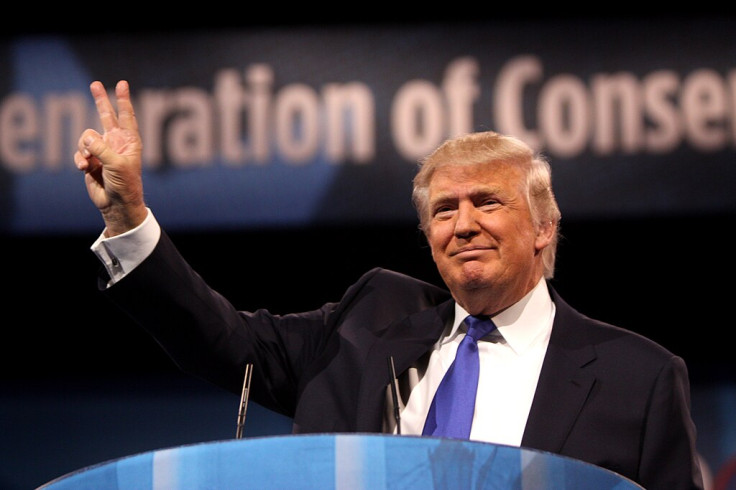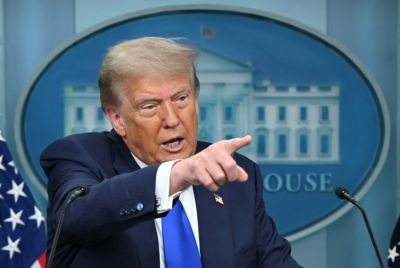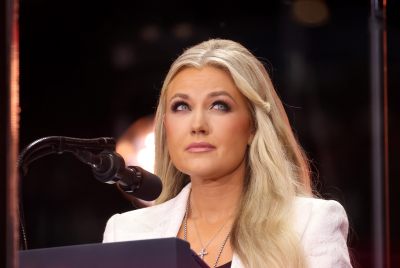Government Shutdown Chaos: Trump Blamed After 'Failed' Senate Vote Leaves Federal Workers in Limbo Over Pay
Trump shutdown sparks Senate fight over paying federal workers. Democrats block GOP bill, but hope remains for a weekend deal.

The paychecks stopped, but the work did not. For hundreds of thousands of 'excepted' federal employees deemed essential, the US government shutdown means reporting for duty without knowing when they will be paid again.
A Republican effort to provide immediate relief failed in the Senate on Thursday, October 23, blocked by Democrats who accused President Donald Trump of seeking a 'blank check' to punish workers and prolonging the shutdown over his demands for border wall funding.
Despite the partisan deadlock, which saw competing Democratic proposals also struck down, key lawmakers emerged expressing cautious optimism that a deal to pay all affected federal workers could be reached, potentially opening a path to ending the shutdown altogether.
However, with no clear end in sight to the funding lapse that began on October 1, federal workers remain in limbo, caught in the crossfire of a high-stakes political battle centred on the President's controversial policies.
A Failed Vote: The Battle Over Paying Feds Amid the Donald Trump Shutdown
The Republican measure, dubbed the Shutdown Fairness Act, aimed to immediately compensate excepted employees who are currently working without pay during the funding lapse. However, it failed to secure the necessary 60 votes to advance, falling short in a 54-45 vote. Three Democrats, Senators John Fetterman, Jon Ossoff, and Raphael Warnock, crossed party lines to support the Republican motion, while Senator Tim Sheehy (R-Mont.) did not vote.
Democrats largely opposed the bill, casting it as a political manoeuvre designed to give President Donald Trump excessive power over the federal workforce during the shutdown. Senate Minority Leader Chuck Schumer labelled the legislation a 'ruse.'
'It's nothing more than another tool for Trump to hurt federal workers and American families and to keep this shutdown going for as long as he wants,' Schumer argued. 'We will not give Donald Trump a license to play politics with people's livelihoods.'
Critics pointed out the bill only addressed pay for those working, leaving hundreds of thousands of furloughed employees unpaid, effectively creating two tiers of suffering federal workers.
Competing Visions: Democrats Slam Donald Trump Pay Plan and Offer Alternatives
Ahead of the vote, Senate Democrats Chris Van Hollen and Gary Peters presented two alternative proposals, both of which were promptly rejected by Republicans.
The Democrats' True Shutdown Fairness Act sought a broader approach, proposing immediate pay for both furloughed and excepted employees, as well as military members and federal contractors.
Crucially, it also included a provision to prevent the Donald Trump administration from implementing reductions in force (RIFs) during the shutdown. Roughly 400,000 federal employees are currently furloughed.
A second, more focused Democratic bill, the Military and Federal Employee Protection Act, simply aimed to ensure payment for all federal employees (excepted and furloughed), contractors, and military personnel, retroactive to the start of the shutdown on 1 October.
Senator Van Hollen sharply criticised the Republican bill for excluding furloughed workers and lacking protection against RIFs.
'If you allow them to decide who they're going to keep on the job... and who they're going to pay, you're giving them also a blank check as to who they're going to send home and who they're going to punish by not paying,' Van Hollen warned.
Hope for a Deal? Bipartisan Optimism Despite Donald Trump Shutdown Impasse
Despite the failed votes and partisan rhetoric, Senator Ron Johnson (R-Wis.), the lead sponsor of the Shutdown Fairness Act, expressed hope for a breakthrough. 'We're basically in agreement here,' Johnson told reporters.
He indicated a willingness to include furloughed workers in a revised bill, stating the main sticking point was now the language around RIFs. 'I don't want to completely constrain the President, but I don't mind making sure that Congress has a say in this as well,' the senator said.
'I'm actually quite hopeful — I think we can fix it over the weekend', Johnson added. 'This could open up a path to opening the government as well.'
This optimism comes as many federal workers brace for their first missed paychecks. Reports are emerging of families struggling to pay rent, buy groceries, and cover essential medical costs.
While a 2019 law guarantees back pay, the Donald Trump administration has questioned this guarantee for furloughed workers. In the meantime, the administration has used shuffled funds to pay active-duty military and some DHS law enforcement officers.
However, union leaders like Dave Spero, president of the Professional Aviation Safety Specialists (PASS), argue that these legislative skirmishes miss the point. 'Clearly, we want people to get paid, but quite honestly, what we want is the shutdown to end', Spero said. 'Stop the shutdown.'
Until President Trump and Congress reach a broader funding agreement, the financial security of nearly a million federal workers hangs precariously in the balance.
© Copyright IBTimes 2025. All rights reserved.






















